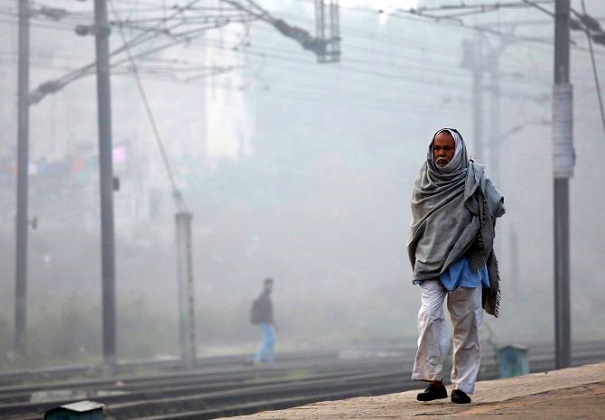
A new study found that, during the past two decades, Delhi’s air quality was the “most deadly” in 2016 as it reduced the life expectancy of a resident by more than 10 years. The study emphasizes that the national capital was the second among 50 most polluted areas of the country.
India is today the world’s second most-polluted country, trailing only Nepal, it said and pointed out that loss of life expectancy was the highest in Asia, exceeding six years in many parts of India and China.
According to air quality life index and an accompanying report produced by the Energy Policy Institute at the University of Chicago (EPIC), globally particulate pollution reduces average life expectancy by 1.8 years, making it the greatest global threat to human health.
“By comparison, first-hand cigarette smoke leads to a reduction in global average life expectancy of about 1.6 years,” it said.
“The impact of particulate pollution on life expectancy is comparable to that of smoking, twice that of alcohol and drug use, three times that of unsafe water, five times that of HIV/AIDS, and more than 25 times that of conflict and terrorism,” it said.

The study pointed out that over the past two decades, the concentration of fine particulates increased by 69 per cent on an average across India, reducing the life expectancy of a typical Indian citizen by 4.3 years compared to 2.2 years in 1998.
It said pollution is the “single greatest threat” to human health globally, with its effect on life expectancy exceeding that of devastating communicable diseases such as tuberculosis and HIV/AIDS, behavioural killers like cigarette smoking, and even war.
Seventy-five per cent of the global population or 5.5 billion people live in areas where particulate pollution exceeds the WHO guideline.
Among the 50 most-polluted areas in the country, Delhi was second to Bulandshahr.
Delhi’s air pollution reduced the life expectancy by more than 10 years of a typical resident in 2016 in a span of 18 years between 1998-2016, the study said.

Post Your Comments